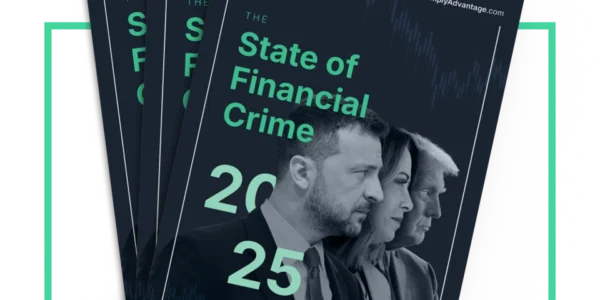

Singapore has a well-earned reputation as a global center for leading-edge financial services, with its regulatory model praised for its innovation-friendly outlook. This includes the virtual asset industry: the Singaporean crypto market is expected to attract 4.19 million users by 2026, according to Statista.
However, as crypto’s global popularity shows no sign of slowing down, regulators are tightening their focus on the sector, with civil and criminal enforcement action the consequences of non-compliance.
This article explains your anti-money laundering and countering the financing of terrorism (AML/CFT) obligations as a crypto service provider in Singapore, what the future could hold for crypto regulation, and how to ensure robust regulatory compliance.
Crypto regulations in Singapore
Singapore’s AML regulatory framework consists of a body of legislation introduced progressively over the past few decades. For the crypto sector, the most important element of this legislation is the Payment Services Act 2019 (PSA), which explicitly includes “digital payment tokens” within its scope.
In addition, the Monetary Authority of Singapore (MAS), the country’s financial regulator, publishes legally binding notices that firms must comply with. For crypto firms, the relevant notice is Notice PSN02 (Prevention of Money Laundering and Countering the Financing of Terrorism—Digital Payment Token Service).
These regulations require you to:
- Register for a digital payment token service (DPTS) license with MAS.
- Carry out business-wide risk assessments that take into account your customers, products and services, and operational locations.
- Apply written policies and procedures based on the results of these risk assessments.
- Conduct customer due diligence (CDD) on all new customers, which includes identifying the beneficial owners of all accounts, and enhanced due diligence (EDD) on higher-risk accounts.
- Continue to screen customers against sanctions lists, adverse media, and politically exposed person (PEP) data on an ongoing basis throughout the business relationship.
- Monitor all customer transactions, taking into account criteria like transaction thresholds, patterns, and the involvement of high-risk jurisdictions.
- Maintain records on customer activity and report suspicious transactions to the authorities.
- When processing transactions, verify the identities of both parties involved and include essential identifying information with the transaction (referred to elsewhere, including by the Financial Action Task Force, as the “travel rule”).

The State of Financial Crime 2025
Uncover the compliance trends you need to know about in our report, based on a survey of 600 industry professionals and packed with expert analysis.
Download your copy2025 updates and the future of crypto regulation in Singapore
In June 2025, MAS revised its approach to crypto regulation by restricting Singapore-based firms from conducting overseas crypto operations, due to the increased AML/CFT risks these activities present and the fact that MAS was unable to effectively supervise them. Digital token service providers (DTSPs) will now need to be licensed for overseas operations, with MAS warning it will granted licenses only in “extremely limited circumstances.”
Given the possibility of more intensive regulatory examination of the crypto sector in Singapore this indicates, you should make sure you can demonstrate you have a comprehensive, risk-based compliance program in place, including advanced AML compliance software, to regulators.
Compliance tips for Singaporean crypto firms
With severe regulatory fines awaiting firms who fail to meet their obligations, Singaporean crypto firms face the complex challenge of implementing effective AML screening and monitoring processes while remaining competitive and scalable in a crowded market.
However, with an effective risk-based approach centered around cutting-edge RegTech solutions, you can onboard customers and grow your business faster than competitors while remaining fully compliant. Best practices include:
- Using up-to-date information for customer screening: The data you need for insight into customer risks changes rapidly, so your system needs to reflect these changes as quickly as possible. Since using old data means you could miss out on financial crime red flags, make sure you have a solution in place to monitor sanctions lists, politically exposed person (PEP) data, and adverse media constantly.
- Screening payments in real-time: Customers expect instant payments, while regulators demand uncompromised security. To balance these imperatives, you should implement a payment screening solution that also uses real-time sanctions and watchlist data, while being able to process transactions without delay and at scale.
- Ensuring you have ongoing monitoring capabilities in place: When the information you collect for CDD is frequently subject to change, you should treat customer risk levels as dynamic rather than static. Instead of periodically re-verifying customer information, which means you risk missing consequential updates in the gaps between checks, consider automated ongoing monitoring to receive changes as soon as possible.
- Customizing transaction monitoring rules to your risk profile: Legacy compliance solutions typically use strict, standardized rules that are not adapted to virtual assets’ unique capabilities and demands. These can cause spikes in false positives while failing to detect genuine threats; instead, look into fully customizable solutions that can incorporate crypto data such as wallet addresses.
- Adopting an AI-first approach to AML compliance: Every element of AML compliance, from customer screening to transaction monitoring, has been revolutionized by artificial intelligence (AI) and machine learning (ML). As businesses based around cutting-edge technology, crypto service providers should be well-placed to adopt innovative solutions and benefit from streamlined compliance checks, enhanced accuracy, and a scalable compliance operation.
AI-powered compliance tools for crypto firms
Striking the balance between business growth and strong regulatory compliance has historically been a significant pain point for scaling businesses. However, thanks to the emergence of AI-driven software solutions, compliance no longer has to be regarded as a drain on resources, but can drive growth through fast onboarding and an enhanced customer experience.
ComplyAdvantage helps global crypto firms optimize for growth with product features including:
- Real-time screening capabilities: We use ML to automatically ingest updates to sanctions lists, global AML watchlists, PEP data, and negative news to give you the latest information on your customers immediately.
- Payment screening that takes less than half a second: ComplyAdvantage Payment Screening lets you process 99 percent of transactions in under half a second while maintaining accurate risk detection.
- An integrated, easy-to-use platform: Siloed data and fragmented systems cause compliance delays and slow growth. With ComplyAdvantage, get holistic customer risk profiles and access all relevant data for case decisions on a single screen.
This article is part of a series on the state of global crypto regulations in 2025. Find out more by reading the other articles in the series:
- AML regulations for US crypto firms: A 2025 guide
- AML regulations for UK crypto firms: Top compliance tips
- AML regulations for Australian crypto firms: How to comply
- An overview of crypto AML regulations in the EU
AML compliance tools for growing crypto firms
Scale your business securely with efficient compliance software used by innovative virtual asset businesses around the world.
Get a demoOriginally published 04 July 2018, updated 23 October 2025
Disclaimer: This is for general information only. The information presented does not constitute legal advice. ComplyAdvantage accepts no responsibility for any information contained herein and disclaims and excludes any liability in respect of the contents or for action taken based on this information.
Copyright © 2026 IVXS UK Limited (trading as ComplyAdvantage).
